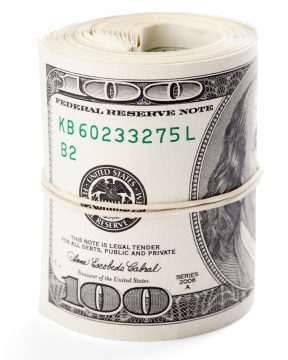The First Amendment vs. American Democracy
 Sometimes, the First Amendment sucks.
Sometimes, the First Amendment sucks.
I’m not supposed to say that: As a career-long journalist and a civil libertarian, I’ve long fancied myself a First Amendment absolutist. But I’m not, really, because if money is speech—and this is something that Republicans, the ACLU, and the Supreme Court all seem to agree on—then I want to see some regulations, darn it.
The court’s conservatives, it’s clear, very much disagree with my point of view. We all remember how they struck down limits on corporate campaign giving in the Citizens United case; now, in a matter heard Tuesday, they appear ready to take the next step and ban all limits on giving to candidates and party committees.
They will do so in the name of free speech.
Justice Antonin Scalia applied his well-honed sarcasm mode in making that case Tuesday. “I assume that a law that only prohibits the speech of 2 percent of the country is okay,” he sniffed during oral arguments, and when you put it that way, it does sound kind of awful.
Put another way—the right way—it sounds wonderful.
To understand why, let’s go back a couple of years to the (ultimately failed) Wisconsin battle over public unions. In the middle of a furious debate, Gov. Scott Walker paused to take a phone call from a prankster he believed to be one of the conservative Koch Brothers. Republicans later pointed out that Walker hadn’t taken much money from the brothers or their assorted political action committees. The moment remained telling: Would Walker have paused mid-debate to take the phone call of a Green Bay plumber, an actual constituent who lived in his state?
We all know the answer.
Even with some limits to the money chase in place, the race for cash increasingly dominates the lives of our elected representatives. Last year, This American Life quoted House Minority Leader Nancy Pelosi saying she’d been to 400 fundraisers in 40 cities just in the year 2011. Another Democrat, Walt Minnick, said he needed to raise $10,000 to $15,000 a day, every day of his two-year term, just to remain competitive in his district.
Now: Imagine the few limits that exist go away. As Solicitor General Donald Verrilli Jr. said during oral arguments Tuesday, it’s easy to envision a country where fewer “than 500 people can fund the whole shooting match.”
What chance does a regular citizen have in a system like that? What chance to be heard by his or her representative in congress, or to believe that that representative serves his constituents instead of his donors?
Not much, it seems. One of the great ideas of our society is that you can always counter speech by bringing more speech to bear. But if money is speech, that’s simply not the case—a few of us will have megaphones, while the rest of us will be confined to whispers.
“By having these limits you are promoting democratic participation,” Justice Ruth Bader Ginsburg said Tuesday. “Then the little people will count some, and you won’t have the super-affluent as the speakers that will control the elections.”
The advocates of limit-free campaign spending have to make implausible claims on its behalf. Take Scalia on Tuesday: “I don’t think $3.5 million is a heck of a lot of money.”
Or take Bobby Burchfield, a lawyer for Senate Minority Leader Mitch McConnell, who argued against the limit by suggesting that the elected aren’t technically corrupted by the process: “We know from the Citizens United decision, Your Honor, that gratitude and influence are not considered to be quid pro quo corruption,” Burchfield said.
To everybody else, the harm is obvious.
Take away the limits, Verrilli said, and “here is a very real risk that—that both—that the government will be run of, by, and for those 500 people and that the public will perceive that the government is being run of, by, and for those 500 people.” That perception, of course, would put our present government on the fast track to illegitimacy.
The other counterargument: That big money already dominates politics. “It’s not that we’re stopping people from spending big money on politics,” Scalia observed, and he’s right. But the system of campaign finance law did serve, over the last century, to slow down that process a little bit, to bring fairness into the equation—just like restrictor plates in NASCAR cars ensure some parity among drivers. Nobody’s seeking perfect equality, just a fighting chance to be heard.
That is what is in danger.
The idea of America is that we govern ourselves. Unlimited cash alters and twists that idea, turning the vast majority of citizens into an audience for governance instead of participants. The results are plain for everybody to see. The First Amendment is a crucial part of American self-governance and expression. But for democracy’s sake, it wouldn’t hurt maybe to bend it a little bit.


